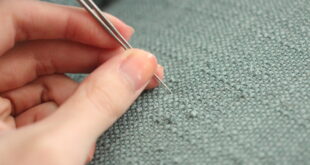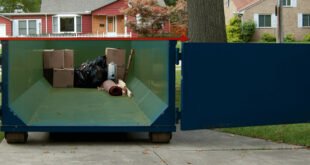
This tour doesn’t exactly qualify for our Living With Kids series. Rather, I should probably title it Living Without Her Family And Missing Them Like Mad While She Is In Outer Space! Because Karen Nyberg is an astronaut. I know. Incredible, right? Just wait until you see her daily views from her windows.
(New York and south along the US East Coast)
I couldn’t resist her generous offer to show us around her out-of-this-world living space (A little sterile, but the view!), share some of her best coping tricks (Again, that view!), and maybe even inspire those of us with kids who routinely travel as part of our careers. (A two-hour plane ride and three days at a Hilton doesn’t sound quite so unbearable when you compare it to a six-month expedition with a waiting husband and toddler son!)
She’ll tell us how she brings her family into the mission with her, how she prepared to climb aboard a rocket and leave her family, dog, and home for six months, and how she will satisfy her need to create something with her hands (She is a DIY girl and an astronaut!) and clear her mind with a good run while living on the space station.

Super inspiring. Friends, you are going to love this one. I promise.
Q: I think this is the first time I’ve described a home as “out there,” but it truly is!
A: I am currently living on the International Space Station about 250 miles above the surface of the earth. We orbit the earth every 90 minutes; that’s sixteen sunrises and sunsets every day! There are usually six crew-members living here at a time, and we exchange three crew-members approximately every three months.

I arrived on the Space Station via a Russian Soyuz rocket on May 29 with two others, and will be departing for home in the same capsule on November 11. Other residents of ISS at this time include one American astronaut (an US Air Force Flight Test Engineer), an Italian astronaut (an Air Force Test Pilot), and three Russian cosmonauts.
Our primary job while living on the Space Station, now that it is mostly built, is to conduct scientific research. We study everything from the behavior of fluids to improve the quality and efficiency of everyday household products, to looking at how diet can help mitigate bone loss. We also use resources to study changes on the earth and to look further into our universe. There are about 150 different experiments from investigators around the world active during any one six-month expedition here on the Space Station.
Q: Your home away from home looks like something out of…well…a film about outer space!
A: The International Space Station is much larger than most people think, with an internal volume close to that of a five bedroom house. We usually refer to the Space Station in two separate segments: the Russian segment and the US segment. The US segment includes laboratories from the United States, Japan, and Europe, and it is where I spend most of my time. It is composed of several modules which were all delivered to space on separate Space Shuttle missions over the past 15 years. (In 2008, I was on the Space Shuttle that delivered the Japanese Laboratory).
There are three modules we call Nodes that have been used to connect other modules together – think of Tinker Toys! – and most of our living space is in these Nodes. Node 1, the first of them to arrive in orbit, is where our pantry of food is located and where we join together to eat our meals. The back of the Node 1 leads to the Russian segment. On the starboard, or righthand, side of Node 1 is the airlock, which is where we go out of the space station in spacesuits to do work on hardware and equipment that is outside of the Space Station.
Attached below Node 1 is the PMM, which we often call this the garage or attic, where we store supplies and spare equipment. To the Port, or left, side of Node 1 is Node 3. Node 3 is primarily our gym and our bathroom! We have a treadmill and a resistive exercise machine for keeping our muscles and bones strong for the return to earth.
Perhaps the best part of the entire ISS is attached to the bottom, earth-facing side of Node 3: the Cupola, made of seven windows with a 360 degree view of our earth!
I spend a lot of time there taking pictures and just looking in awe. To the forward side of Node 1 is attached the US Laboratory. Our last piece of exercise equipment, a cycle ergometer, is in the Lab. Otherwise, it mostly contains racks of scientific equipment.
Forward of the US Laboratory is Node 2. This is where four of our sleep stations are located. Two others are located in the Russian segment to total room for six! Attached to the left side of Node 2 is the Japanese Laboratory, and the European Laboratory is to the right.
The Space Station runs entirely on solar power from some beautiful, golden, very large solar arrays. Our air and water systems are closed-loop, meaning we generate oxygen, clean out carbon dioxide from the air, and turn air humidity and urine into usable water. The entire Space Station is an impressive piece of engineering!
Q: It’s all so high-tech! Do you miss your home and all of your things?
A: I do miss my home, very much so. I love to be at home with my family, my dog, my things. The Space Station is very lab-like and not very colorful, and certainly not pretty! I love flowers and usually have fresh flowers in the house. I miss that. I miss our yard, which my husband has turned into a wonderful oasis, with a pool surrounded by yellow flowers…my favorite.
We are allowed to bring a few items with us. To me, the most important is pictures of my husband and son and the three of us together. I have my husband’s wedding band on a necklace that I wear, along with a charm that has a “J” on it for my son. I have a couple small toys that my son likes. I keep all of these items in my sleep station, which is about the size of a phone booth, making it the most personal and homey place in the Space Station.
I also miss using a normal toilet!
Q: How do you deal with living in such a sterile, not-so-private environment?
A: During the workdays, we have video cameras turned on in almost all of the modules of the Space Station. The camera views are sent to the Mission Control Center in Houston and are broadcast on NASA TV and live on the internet. It can be a little intimidating at first when you realize you are being watched at work all day long! It is something we get used to, however, and almost forget they are there.
Evenings and weekends are more private, and the cameras are turned off. With Space Station the size it is, I’ve never felt crowded. And I always have the privacy and comfort of my sleep station if I feel I’d like some time alone.
Q: How is your family coping with you being away?
A: My husband, Doug Hurley, is a former Marine Corps F/A-18 pilot and also an astronaut. He flew on two Space Shuttle missions, including the final mission of the Space Shuttle in 2011 before it was retired. Both of his flights were to the Space Station, so he has been here and he knows exactly what it is like. I think that makes it a lot easier to communicate about what I’m experiencing.

We have a three-and-a-half year old son, Jack. He is very outgoing, talkative, inquisitive, perceptive, and funny – such an amazing little boy. We also have a ten year old dog named Charlie. Another person who has become a very important part of the family is our nanny, Lucy. Her love and special care for Jack has been vital during this period of time. They are keeping themselves busy while I’m gone, but I know they miss me and are eager for me to return.

Since I flew to ISS on a Russian vehicle, the final portion of my training was in Russia. I left the United States in April. My son traveled to Russia with me and was able to spend close to a month there with me. My husband joined us for a week and then took Jack home before I left Russia for Kazakhstan on May 15 two weeks before launch. I haven’t seen Jack since then. Doug came to the Baikonur Cosmodrome a few days prior to my launch, leaving Jack at home with grandparents. The last time I saw my husband was the day of my launch into space.
I will be returning to earth on November 11.
Q: How do you stay connected with them when you’re so far away?
A: We have an internet phone that allows us to call home almost any time of the day. We are constrained by space station communication antenna coverage, but I am able to talk to my husband every day, and sometimes more than once. We also have a family video conference set up by a support team at NASA one time per week, usually on Sundays. Since my son is so young, it is difficult to talk with him for any length of time on the phone, so the video conference is really the time to interact with him.

My husband sends me pictures and videos from home, and I have also been making a short video for Jack every single day that I e-mail to my husband. I show him weightless tricks, look out the window, sing him a song, talk about things we’ve done together, and always end it with an “I love you and miss you” and a blown kiss.

Jack spent a month this summer with his grandparents in upstate New York. There were a couple nights toward the middle of his stay when he wouldn’t let his grandma leave the room when she put him to bed. He cried and cried. Since he was a baby, he has always been very good about going to bed, so this was definitely unusual.
It broke my heart. I wanted nothing more than to go sit and rock with him. This happened for a few days until my husband was able to visit for a weekend. After Daddy put him to bed once, he never did that again.
Q: Do you ever get scared?
A: I don’t think one could be human and not get a little scared once in a while; it’s a natural reaction. There are certainly things that will get my heart rate elevated. I’ve had many moments of nervous anticipation throughout my career; moments when my heart feels like it could beat out of my chest. However, I’m generally more apt to react in situations when my performance has a direct impact on the outcome. My body reacts more to giving a speech in front of a crowd or during an interview than it did the two times I rode a rocket into space!
(Karen’s sewing space at home…)
Q: Did you do anything special to prepare your son for your time away? For those of us who travel – albeit not nearly as far as you! – your advice is appreciated.
A: In the two years prior to launching to space, I had traveled quite a bit. I often took my son and our nanny with me. The longest time I’d been away from him prior to now was five weeks. We talked a lot about what Mommy was doing and where Mommy was going. My goal was to try and never make it a negative thing that I would be gone, and to involve him as much as possible. He knew what the space station was and that there was no gravity there and that Mommy was going to live there. He met all of my crew-mates. We tried to simply make it all as comfortable and familiar as possible for him.
All over the world, when conditions are right and we are flying overhead, it is possible to see the Space Station as a very bright star moving across the sky. My husband will try to get outside every time he’s able to see it. We’ve been showing my son since he was a baby and telling him that it is where Mommy is going to live for a while. When my son looks up and sees it he yells “Hi, Mommy!”
Q: What has surprised you the most during this period you’re away from home? Both professional and personally as a mother and wife.
A: I have been very surprised at how quickly the days pass by here. When, at the same time, it feels like an eternity since I left my home and since I launched into space. When you’re given such a unique opportunity like this, and you’ve sacrificed time with your family to do it, you really want to make the most of it. I’ve been surprised to find that my free time on the evenings and weekends often seems to go faster than the busy work days.
My first priority while here has been to stay connected with my husband and son. I’ve also been trying to share this experience with others in the world the best I can through Twitter and Pinterest. I have a lot of other personal things I’d hoped to do while here and I find myself not having nearly the time to spend on them that I thought I would.
(Eastern Mediterranean Sea coast: Turkey, Syria, Lebanon, and Israel.)
Q: What do you look forward to the most on your return? How are you imagining it?
A: I daydream about being at home with my husband and son. I can almost smell the Saturday morning coffee that my husband has brewed, drifting into my bedroom. I can see us sitting in the morning sun in the kitchen talking about the week behind us and the day to come. I also daydream about sitting with my son on his bedroom floor, reading books, being silly, singing songs. I’m longing for the simple things and our daily routines. I miss that.
(Day turns to night at the terminator.)
Q: Please finish the sentence: I wish someone had told me…
A: I wish someone had told me how difficult spaceflight is on the families of those flying. The aspect of a loved one being far from home for a significant length of time is difficult enough. But it can be considerably more unnerving for family when they think about the risks associated with riding a rocket into space, living in a place where, just outside a relatively thin metal wall, lies the harsh vacuum of space, and the only way home is a fiery trip through Earth’s atmosphere.

Having been on both sides – launching into space myself and twice watching my husband – I can say with most certainty that it is harder on the family watching than on the astronaut doing his or her job.
–-
Sixteen sunsets and sunrises a day. Karen, that is a lot of beauty to take in! Thank you so much for escorting us on this educational and unbelievable tour. I’m so proud of the sacrifice you’re making, and feel lucky to add you to my list of friends who inspire me with their talents and generosity. Can’t wait to hear news of your wonderful return home!
I have to be honest; I didn’t realize how much was happening in the Space Station. Friends, do you think you could ever be an astronaut? Scratch that. What I mean to ask is could you ever sacrifice so much time away from your family for a greater good? Could you, would you, and have you ever? I’d love to hear your experiences and opinions, whether you’re a parent who travels once a year for three days and agonizes over it, or you’ve got a job that requires a lot of time out-of-town. I’m somewhere in between, so I’ll be super interested in your stories and coping tricks.
P.S. — Take a peek at all the homes in my Living With Kids series here. And if you’d like to share your own home with us, just send me a note! It’s a lot of fun…I promise!
























